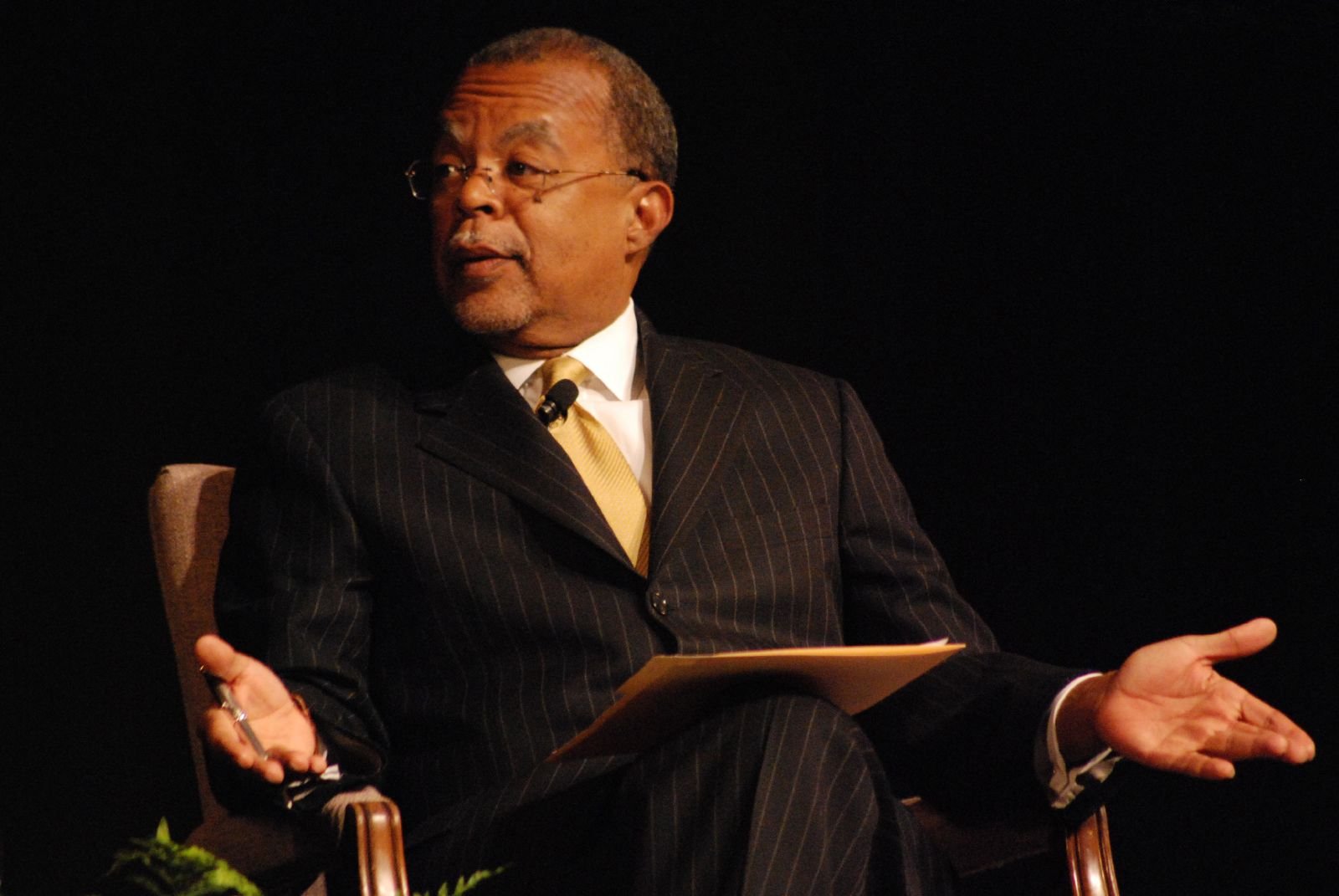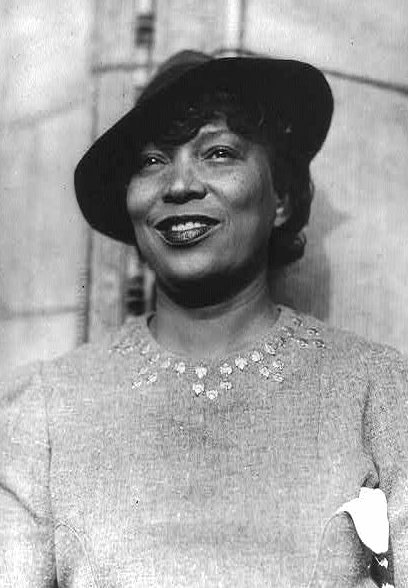|
Signifyin'
Signifyin' (sometimes written "signifyin(g)") is a practice in African-American culture involving a verbal strategy of indirection that exploits the gap between the denotative and figurative meanings of words. A simple example would be insulting someone to show them affection. Other names for signifyin' include: "Dropping lugs, joaning, sounding, capping, snapping, dissing, busting, bagging, janking, ranking, toasting, woofing, roasting, putting on, or cracking." Signifyin' directs attention to the connotative, context-bound significance of words, which is accessible only to those who share the cultural values of a given speech community. The expression comes from stories about the signifying monkey, a trickster figure said to have originated during slavery in the United States. The American literary critic Henry Louis Gates Jr. wrote in '' The Signifying Monkey'' (1988) that signifyin' is "a trope, in which are subsumed several other rhetorical tropes, including metaphor, ... [...More Info...] [...Related Items...] OR: [Wikipedia] [Google] [Baidu] |
Hip Hop Music
Hip-hop or hip hop (originally disco rap) is a popular music Music genre, genre that emerged in the early 1970s from the African Americans, African-American community of New York City. The style is characterized by its synthesis of a wide range of musical techniques. Hip-hop includes rapping often enough that the terms can be used synonymously. However, "hip-hop" more properly denotes an entire hip-hop culture, subculture. Other key markers of the genre are the disc jockey, turntablism, scratching, beatboxing, and hip hop production, instrumental tracks. Cultural interchange has always been central to the hip-hop genre. It simultaneously borrows from its social environment while commenting on it. The hip-hop genre and culture emerged from block parties in ethnic minority neighborhoods of New York City, particularly The Bronx, Bronx. DJs began expanding the instrumental Break (music), breaks of popular records when they noticed how excited it would make the crowds. The extend ... [...More Info...] [...Related Items...] OR: [Wikipedia] [Google] [Baidu] |
Henry Louis Gates Jr
Henry Louis Gates Jr. (born September 16, 1950), popularly known by his childhood nickname "Skip", is an American literary critic, professor, historian, and filmmaker who serves as the Alphonse Fletcher University Professor and the director of the Hutchins Center for African and African American Research at Harvard University. He is a trustee of the Gilder Lehrman Institute of American History. He rediscovered the earliest known African-American novels and has published extensively on the recognition of African-American literature as part of the Western canon. In addition to producing and hosting previous series on the history and genealogy of prominent American figures, since 2012, Gates has been host of the television series ''Finding Your Roots'' on PBS. The series combines the work of expert researchers in genealogy, history, and historical research in genetics to tell guests about the lives and histories of their ancestors. Early life and education Gates was born on Septe ... [...More Info...] [...Related Items...] OR: [Wikipedia] [Google] [Baidu] |
African-American Culture
African-American culture, also known as Black American culture or Black culture in American English, refers to the cultural expressions of African Americans, either as part of or distinct from mainstream American culture. African-American/Black-American culture has been influential on American and global worldwide culture as a whole. Black-American/African American culture primarily refers to the distinct cultural expressions, traditions, and contributions of people who are descendants of those enslaved in the United States, as well as free people of color who lived in the country before 1865. This culture is rooted in a specific ethnic group and is separate from the cultures of more recent melanated (dark-skinned) immigrants from Africa, the Caribbean, or Afro-Latinos. African American culture is not simply defined by race or historical struggle but is deeply rooted in shared practices, identity, and community. African American culture encompasses many aspects, including Bla ... [...More Info...] [...Related Items...] OR: [Wikipedia] [Google] [Baidu] |
Aporia
In philosophy, an aporia () is a conundrum or state of puzzlement. In rhetoric, it is a declaration of doubt, made for rhetorical purpose and often feigned. The notion of an aporia is principally found in ancient Greek philosophy, but it also plays a role in modern post-structuralist philosophy, as in the writings of Jacques Derrida and Luce Irigaray, and it has also served as an instrument of investigation in analytic philosophy. Philosophy In philosophy, an aporia is a philosophical puzzle or a seemingly irresoluble impasse in an inquiry, often arising as a result of equally plausible yet inconsistent premises, i.e., a paradox. It can also denote the state of being perplexed, or at a loss, at such a puzzle or impasse. Ancient Greek philosophy Plato's early dialogues are often called his 'aporetic' (Greek: ) dialogues, because they typically end in aporia. In such a dialogue, Socrates questions his interlocutor about the nature or definition of a concept, e.g., virtue or cou ... [...More Info...] [...Related Items...] OR: [Wikipedia] [Google] [Baidu] |
Epideixis
The epideictic oratory, also called ceremonial oratory or praise-and-blame rhetoric, is one of the three branches, or "species" (eidē), of rhetoric, as outlined in Aristotle's ''Rhetoric'', to be used to praise or blame, during ceremonies. Origin and pronunciation The term's root has to do with display or show (δεῖξις ''deixis''). It is a literary or rhetorical term from the Greek ἐπιδεικτικός "for rhetorical effect". It is generally pronounced . Characteristics This is rhetoric of ceremony, commemoration, declamation, demonstration, on the one hand, and of play, entertainment and display, including self-display. It is also the rhetoric used at festivals, the Olympic games, state visits and other formal events like the opening and closing ceremonies, and celebrations of anniversaries of important events, including illustrious victories, births, deaths, and weddings. Its major subject is praise and blame, according to Aristotle in the limited space he pr ... [...More Info...] [...Related Items...] OR: [Wikipedia] [Google] [Baidu] |
Sampling (music)
In sound and music, sampling is the reuse of a portion (or sample) of a sound recording in another recording. Samples may comprise elements such as rhythm, melody, speech, or sound effects. A sample might comprise only a fragment of sound, or a longer portion of music, such as a drum beat or melody. Samples are often layered, Equalization (audio), equalized, sped up or slowed down, repitched, Loop (music), looped, or otherwise manipulated. They are usually integrated using electronic music instruments (Sampler (musical instrument), samplers) or software such as digital audio workstations. A process similar to sampling originated in the 1940s with ''musique concrète'', experimental music created by Tape splice, splicing and Tape loop, looping tape. The mid-20th century saw the introduction of keyboard instruments that played sounds recorded on tape, such as the Mellotron. The term ''sampling'' was coined in the late 1970s by the creators of the Fairlight CMI, a synthesizer with th ... [...More Info...] [...Related Items...] OR: [Wikipedia] [Google] [Baidu] |
African-American Music
African-American music is a broad term covering a diverse range of musical genres largely developed by African Americans and their African-American culture, culture. Its origins are in musical forms that developed as a result of the Slavery in the United States, enslavement of African Americans prior to the American Civil War. It has been said that "every genre that is born from America has black roots." White slave owners subjugated their slaves physically, mentally, and spiritually through brutal and demeaning acts. Some White Americans considered African Americans separate and unequal for centuries, going to extraordinary lengths to keep them oppressed. African-American slaves created a distinctive type of music that played an important role in the era of enslavement. Slave songs, commonly known as work songs, were used to combat the hardships of the physical labor. Work songs were also used to communicate with other slaves without the slave owner hearing. The song "Wade in ... [...More Info...] [...Related Items...] OR: [Wikipedia] [Google] [Baidu] |
"Yo Mama" Joke
A "yo mama" joke or your mom joke is a form of humor involving a verbal disparaging of one's mother. Used as an insult, "your mother..." preys on widespread sentiments of parental respect. Suggestions of promiscuity and obesity are common, but the form's limit is human ingenuity. Compared to other types of insults, "your mother" insults are especially likely to incite violence. Slang variants such as "ur mum" are sometimes used, depending on speaker. Insults involving "your mother" are commonly used when playing the Dozens. In non-American areas, the association can be with juvenile culture generally. Although the phrase has a long history of including a description portion, such as the old "your mother wears combat boots", the phrase "yo mama" by itself, without any qualifiers, has become commonly used as an all-purpose insult or an expression of defiance. Construction Your mom jokes usually consist of a sentence that starts with "Your mother..." This is followed by eith ... [...More Info...] [...Related Items...] OR: [Wikipedia] [Google] [Baidu] |
Ferdinand De Saussure
Ferdinand Mongin de Saussure (; ; 26 November 185722 February 1913) was a Swiss linguist, semiotician and philosopher. His ideas laid a foundation for many significant developments in both linguistics and semiotics in the 20th century. He is widely considered one of the founders of 20th-century linguistics and one of two major founders (together with Charles Sanders Peirce) of semiotics, or ''semiology'', as Saussure called it. One of his translators, Roy Harris, summarized Saussure's contribution to linguistics and the study of "the whole range of human sciences. It is particularly marked in linguistics, philosophy, psychoanalysis, psychology, sociology and anthropology." Although they have undergone extension and critique over time, the dimensions of organization introduced by Saussure continue to inform contemporary approaches to the phenomenon of language. As Leonard Bloomfield stated after reviewing Saussure's work: "he has given us the theoretical basis for a science of h ... [...More Info...] [...Related Items...] OR: [Wikipedia] [Google] [Baidu] |
African-American
African Americans, also known as Black Americans and formerly also called Afro-Americans, are an American racial and ethnic group that consists of Americans who have total or partial ancestry from any of the Black racial groups of Africa. African Americans constitute the second largest ethno-racial group in the U.S. after White Americans. The term "African American" generally denotes descendants of Africans enslaved in the United States. In 2023, an estimated 48.3 million people self-identified as Black, making up 14.4% of the country’s population. This marks a 33% increase since 2000, when there were 36.2 million Black people living in the U.S. African-American history began in the 16th century, with Africans being sold to European slave traders and transported across the Atlantic to the Western Hemisphere. They were sold as slaves to European colonists and put to work on plantations, particularly in the southern colonies. A few were able to achieve freedom through ... [...More Info...] [...Related Items...] OR: [Wikipedia] [Google] [Baidu] |
African Mythology
African or Africans may refer to: * Anything from or pertaining to the continent of Africa: ** People who are native to Africa, descendants of natives of Africa, or individuals who trace their ancestry to indigenous inhabitants of Africa *** List of ethnic groups of Africa *** Demographics of Africa *** African diaspora ** African, an adjective referring to something of, from, or related to the African Union ** Citizenship of the African Union ** Demographics of the African Union **Africanfuturism ** African art ** *** African jazz (other) ** African cuisine ** African culture ** African languages ** African music ** African Union ** African lion, a lion population in Africa Books and radio * ''The African'' (essay), a story by French author J. M. G. Le Clézio * ''The African'' (Conton novel), a novel by William Farquhar Conton * ''The African'' (Courlander novel), a novel by Harold Courlander * ''The Africans'' (radio program) Music * "African", a song by Pet ... [...More Info...] [...Related Items...] OR: [Wikipedia] [Google] [Baidu] |






